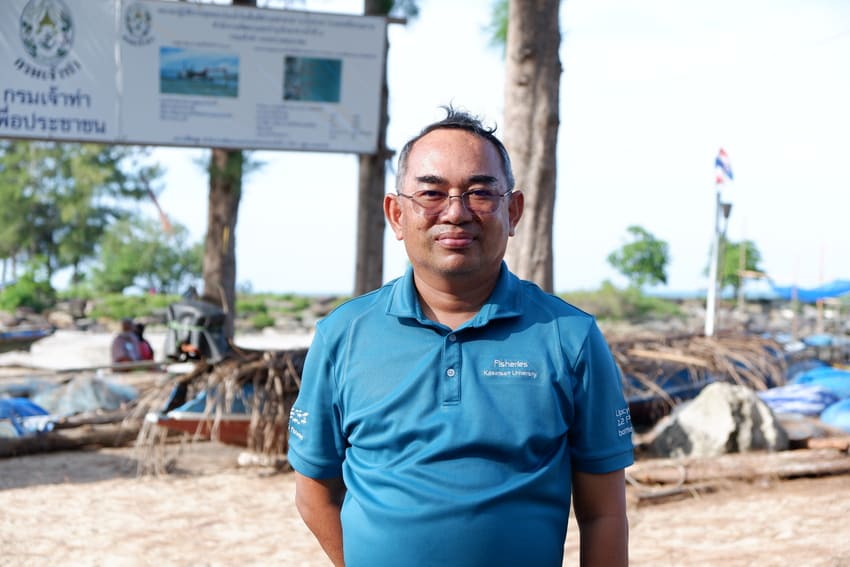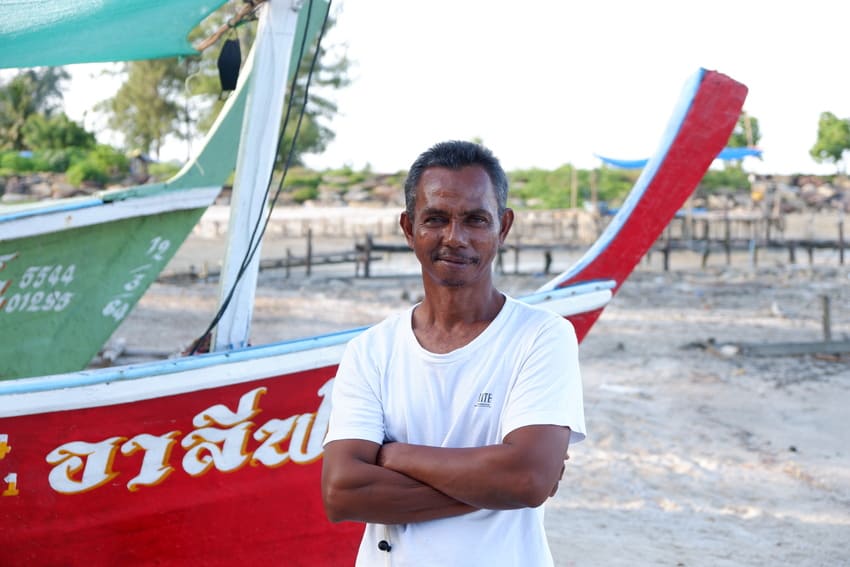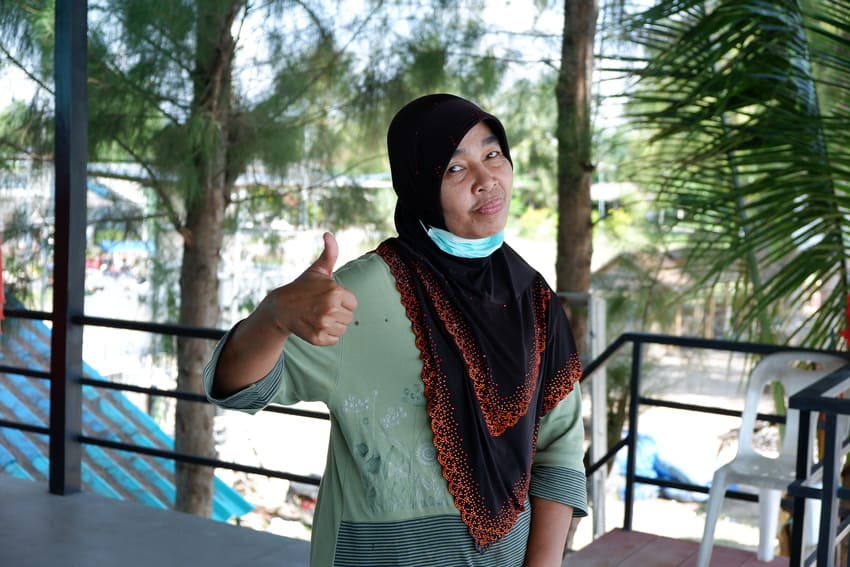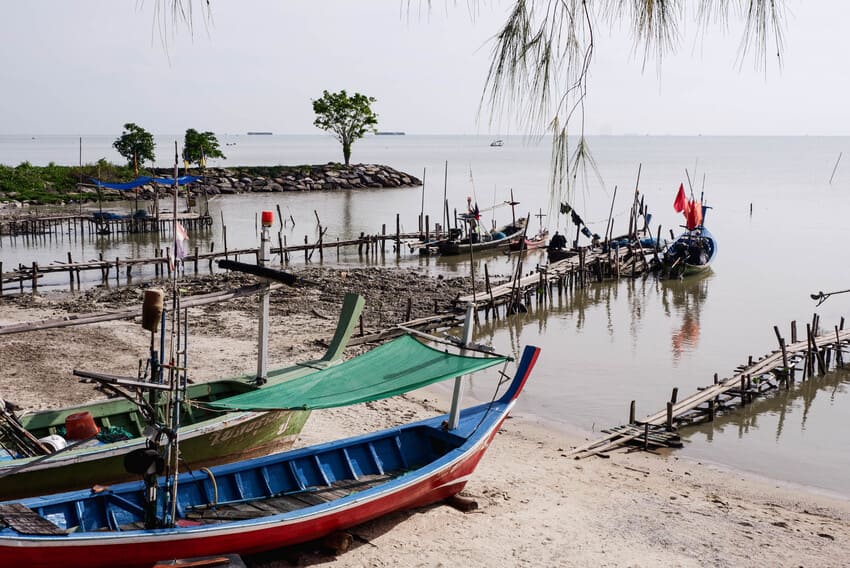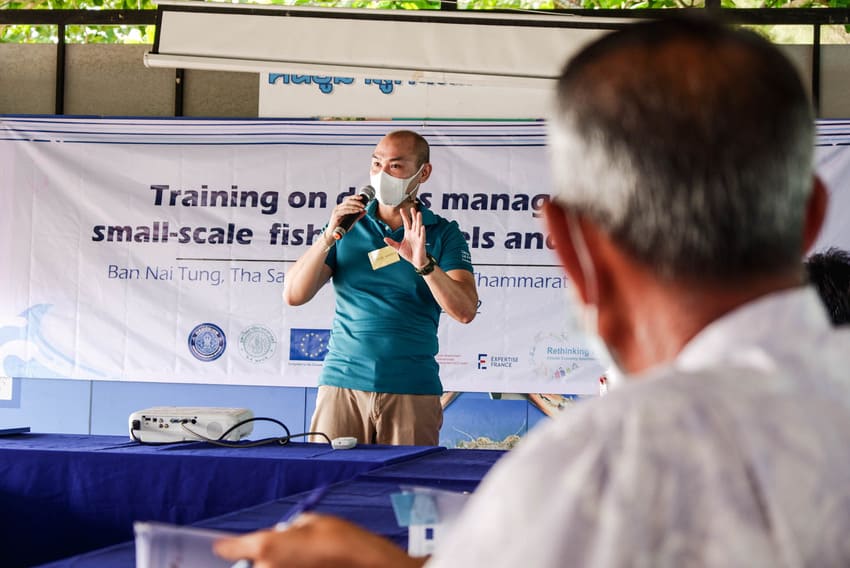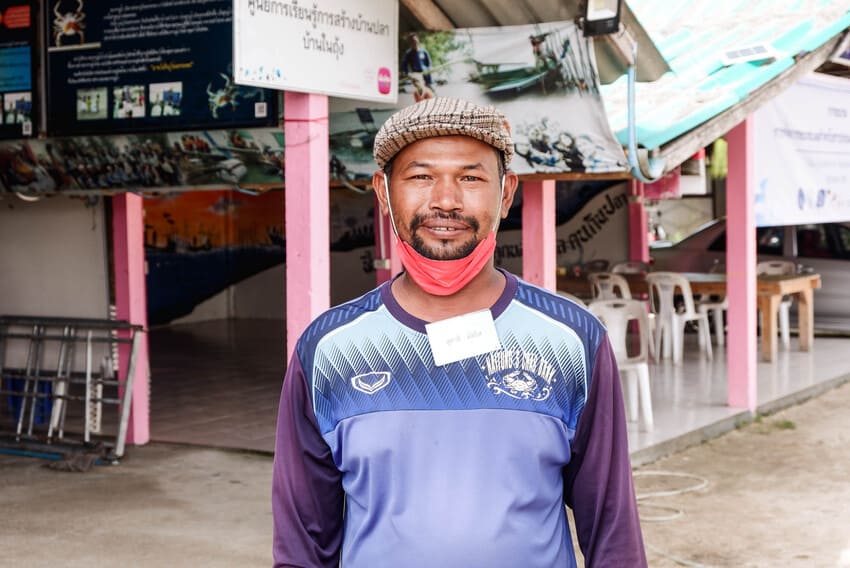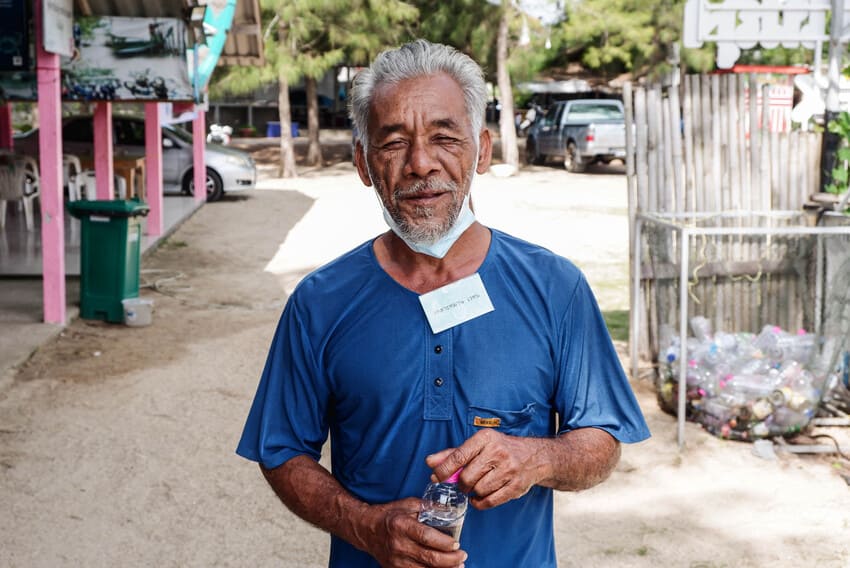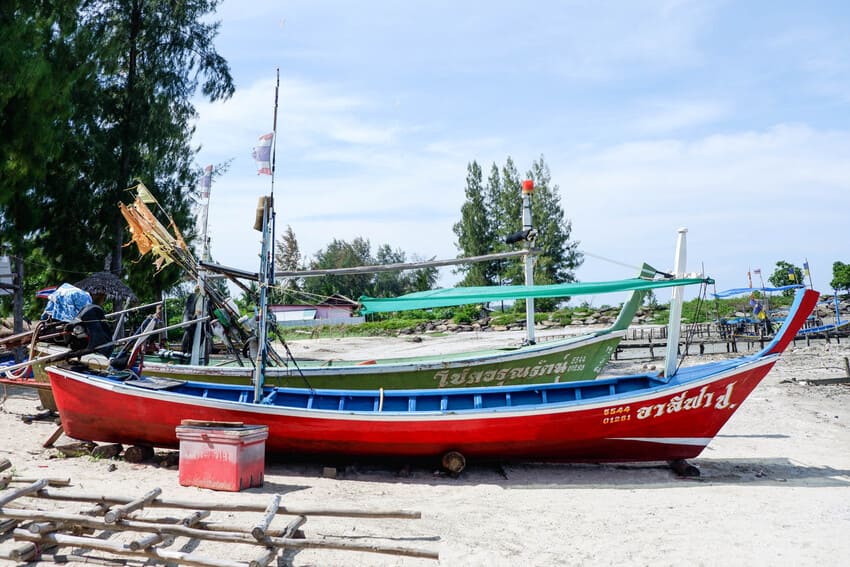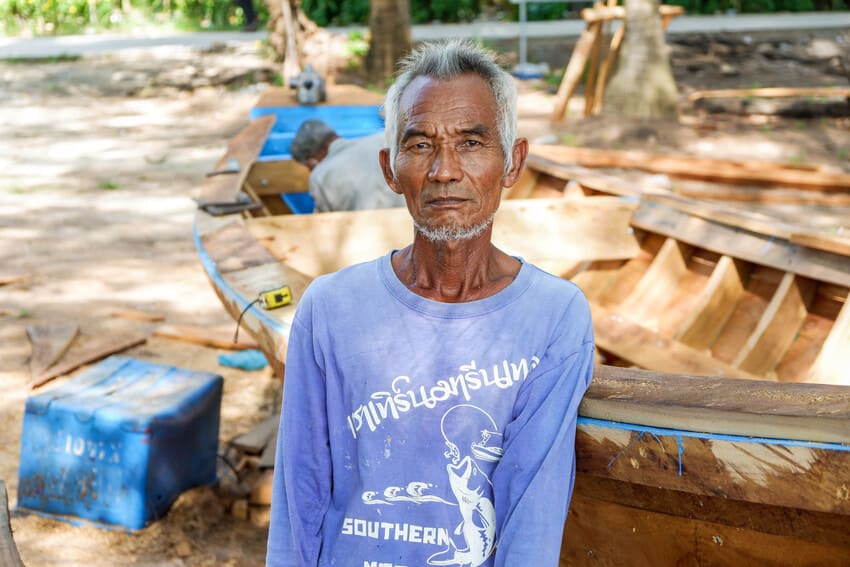Reducing marine debris with the fishery sector
“The sea is not a rubbish tip,” says Charoen Tohaitae, the community leader of Ban Nai Thung, a fishing village on Thailand’s coast. “We don’t throw litter into the open water or leave our old fishing nets out there – the sea is our livelihood.”
Other fishermen stand around Tohaitae and nod in agreement as he speaks. He’s been a fisherman for more than 40 years and often represents Ban Nai Thung’s fishing community in interactions with organisations and outsiders. The village is known for its environmentally friendly practices, even beyond its borders. But Tohaitae sees how fishers are forced to deal with beach litter of unknown origin – and how the marine ecosystem is struggling to cope with plastic waste pollution. Working with Tohaitae, the fishermen of Ban Nai Thung and professors from the Kasetsart University, the Rethinking Plastics project explored how to reduce marine plastic waste on small fishing vessels and in fishing communities. This involved analysing the fishers’ waste usage for two months and developing a training programme for them, which can now be replicated in other communities. Hopefully, this will contribute to better waste management in some of Thailand’s 3,600 fishing villages.
WHAT HAVE WE ACHIEVED IN 10 MONTHS?
1. Two professions – one project
Kasetsart University worked with the fishermen of Ban Nai Thung to learn about their routines and how they managed waste. For two months, the fishermen were asked to list everything they brought on board their boats, from lunch items and water bottles to energy drinks. They listed the number of fishing nets and gear lost at sea. Abandoned fishing nets are made of plastic fibres and can trap small fish, who in turn attract bigger fish, causing a chain of death. The fishermen also collected waste from the sea, such as plastic, glass bottles, cans, fishing nets and food packaging. The amount and types of waste were analysed by the university staff, who used the data to develop guidelines and recommendations on how to reduce plastic waste leakage into the ocean. This will be beneficial not only for Ban Nai Thung but also for other fishing villages along the Thai coastline.
“This is the first time we have looked into plastic consumption in the traditional fishing community. These communities account for quite a few fishermen and vessels – there are around 3,600 fishing communities like Baan Nai Thung scattered all along Thailand’s coastline. Even though these fishers use small boats, they fish frequently and live by the sea, so they may contribute to the overall production of marine debris. If we can show the locals why plastic reduction is crucial for their community, they will find a way to take this forward on their own.”
Asst. Prof. Methee Kaewnern, Department of Fisheries Management, Kasetsart University
2. Sharing knowledge for a common goal
In fishing communities, people still have limited knowledge about how to improve waste management and reduce plastic litter. We organised trainings for 70 participants on ways to collect, sort, manage and recycle marine debris within the community and on board vessels. In return, we learned about their needs and listened to their questions in order to develop appropriate materials. The participants worked with the university professors to draft practical guidelines on marine debris and disposal management for small-scale fishing vessels and community members. The fishers can use the advice to learn strategies for changing their own behaviour, as well as that of others. A short film on debris management was produced to guide this ongoing process.
“I clean the beach every morning, but we all get together to collect litter on Eid al-Fitr and on 5 December every year. The Subdistrict Administrative Organisation lends us containers and sometimes sends a truck to pick them up, but it's never enough. The rubbish in our village just keeps increasing. People today are all about convenience. You end up with rubbish just by buying yourself a meal.”
Anan Yiko, a fisherman from Ban Nai Thung
WHAT ARE OUR RECOMMENDATIONS FOR THE FUTURE? There is a need for more surveys and data on the type and amount of marine debris generated by small-scale fishing vessels and fishing communities. This will provide the basis for tailor-made information campaigns on debris disposal management for fishers and the public, helping reduce the amount of debris generated from fisheries and strengthening cooperation between fishers and relevant agencies.
Watch the project video: https://fish.ku.ac.th/marine_debris/ภาพยนตร์สั้นการจัดการขยะทะเล.mp4?fbclid=IwAR2dW4fHT06JFRfgknmaQLk0kNZdHHx7xTQHB8t_iWtfkfD8O3pG0lsC-SU
Implemented by: Faculty of Fisheries, Kasetsart University
Facebook: คณะประมง มหาวิทยาลัยเกษตรศาสตร์ | Facebook
Developed Documents:
Practical guideline on marine debris management for small-scale fishing vessels and community
Poster1: POSTER_1.jpg (1092×1498) (ku.ac.th)
Poster2: POSTER_2.jpg (1088×1506) (ku.ac.th)


